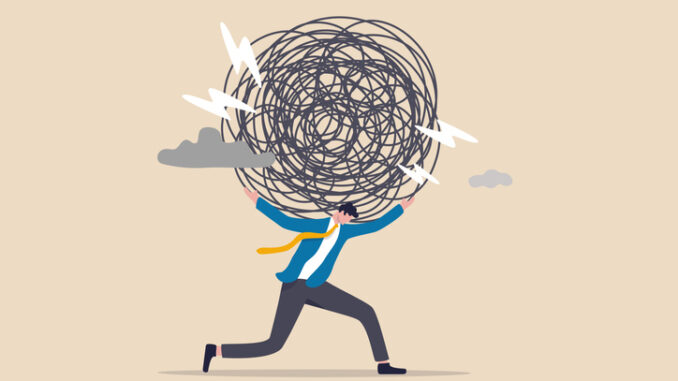
Follow these steps from Dr Clara Russell to help cope with stress
CREDIT: This is an edited version of an article that originally appeared on Happiful
“Is anything causing you stress at the moment?” It’s something I’ve asked patients hundreds of times during my work as a GP. Now, more than ever, the ‘stress’ word is cropping up. We are frazzled – working from home, looking after elderly parents, managing long-term illness, facing redundancy, or working long hours to keep our businesses afloat – and stress is on the rise.
But, from my experience, there are seven powerful ways we can tackle stress. However, before we get started, we need to do the following things.
Acknowledge
Accepting that you feel stressed, or that stress is contributing to physical symptoms, can be hard. Be kind to yourself and acknowledge that you are feeling the pressure.
Know there is no such thing as ‘small stress’
Our brains do not differentiate between big stresses and small ones, it just registers stress. Major stressful life events may prompt us to seek help if it becomes obvious to us, or those around us, that we are struggling – but the ‘small things’ that cause niggles, and linger in our minds, can be harder to spot. Our resilience and ability to weather the day-to-day storms can be gradually impacted by these ‘daily hassles’.
Stop, look, listen
We might be talking about stress more but are we listening to ourselves? Stress is dropped into conversation like talking about the weather, which can detract from the impact a build-up of stress can have on us. Even my six-year-old son said to me recently: “It’s okay, don’t stress mummy.” Stress was not a word that I had in my vocabulary in primary school!
The effects of stress are varied and may be hard to identify – disrupted sleep, snappiness, struggling to focus, and lacking motivation are common. These features can be easy to miss, dismiss, or distract ourselves from, especially when life has been as hectic as it has been in recent months.
Our response to stress has four stages; the initial event, how we perceive that event, our response to it, and the effect this has on us. The good news is that you can take steps today to combat and manage how you’re feeling.
The power of movement
If you are an exercise-avoider (like me,) you will always be able to find something more enjoyable to do than get active but a mere 20 minutes of activity has been shown to improve our mood for up to 12 hours – so get moving and ‘endorphinate’.
The power of mindfulness and meditation
Psychological research from Harvard shows that our minds wander for up to 47% of the time. Cultivating a mindful approach to the day-to-day routine helps us focus and ‘be present’. Regular practise of meditation has been shown to improve anxiety, depression and quality of life, as well as maintaining a healthy mind and creating an increase wellbeing.
The power of gratitude
Many studies have shown the link between being grateful and elevated levels of positive feelings. Gratitude has been shown to decrease depression, increase resilience, improve sleep, decrease the risk of heart disease and improve relationships. Taking time to express gratitude helps us slow down and focus on the present, and the positives.
The power of forgiveness
The Stanford Forgiveness Project has demonstrated that forgiveness reduces stress, anger, and depression, and helps with feelings of optimism. It also supports our immune system, and reduces the risk of heart disease and chronic pain.
The power of kindness
This applies to both you and those around you. In April 2020 the Mental Health Foundation worked with YouGov to conduct an online survey of more than 4,200 UK adults aged 18 and over. It revealed that 63% of UK adults agree that when other people are kind it has a positive impact on their mental health – and the same proportion agreed that being kind to others has a positive impact on their mental health. It’s a win-win.
The power of connection
Connecting with those we care about can have a buffering effect on stress. Supportive, positive relationships work both ways, and you should never underestimate the power of a ‘phone call or a friendly chat.
The power of sleep
Try to establish a winding down routine; you have a morning one, so invest in a bedtime one too. Switch devices off at least an hour before bed, avoid caffeine after 2pm, keep your bedroom cool and have a notebook by your bed to write down any worries, ideas, or things to do that pop into your mind.

Be the first to comment